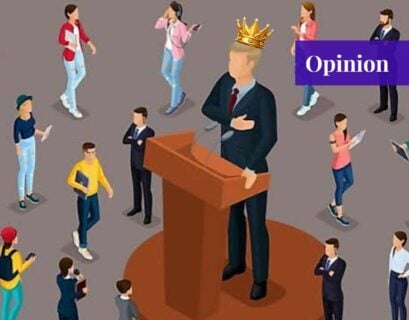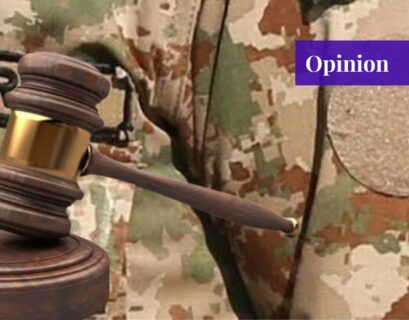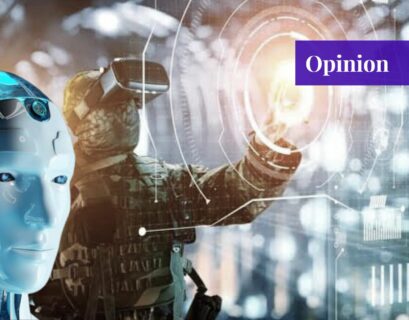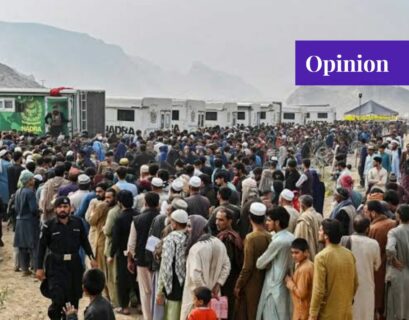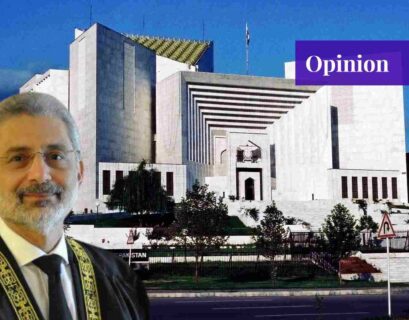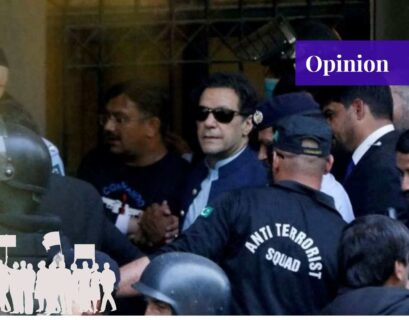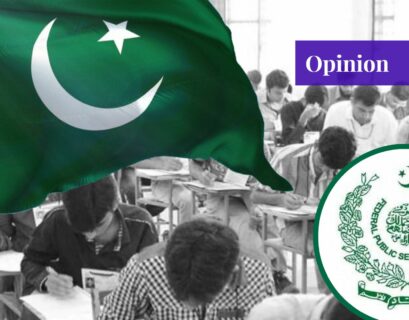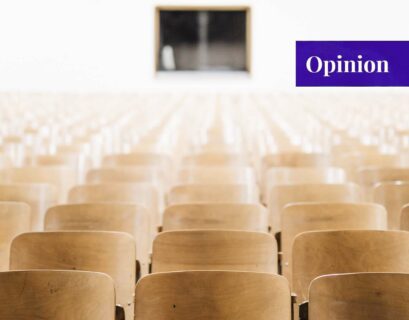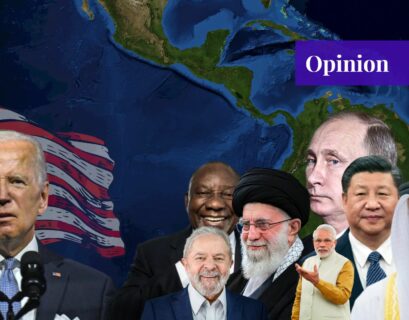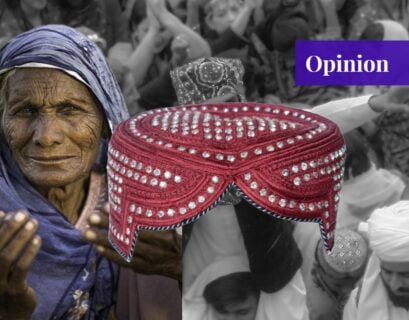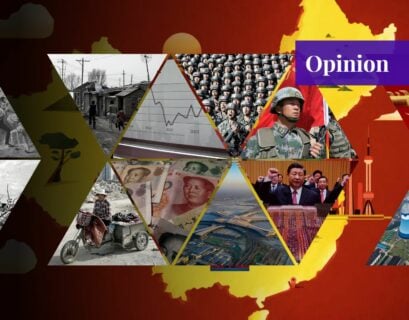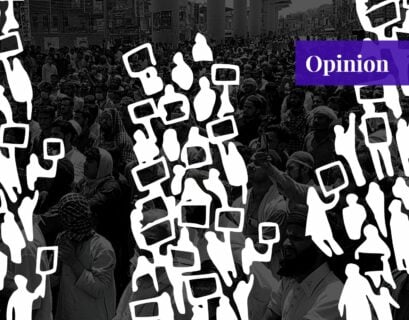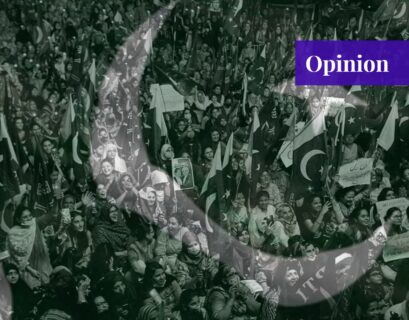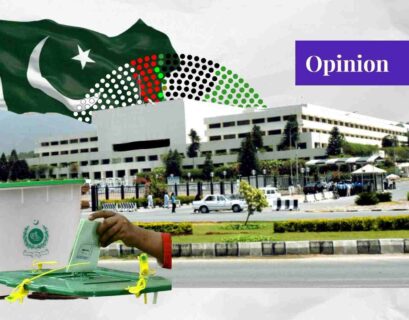Evolving Concept of Sovereignty in Democratic & Capitalistic Societies
Traditionally, sovereignty as a concept stirred very strong emotions and feelings. The grandeur of the idea was associated with monarchs and states. It percolated from the top towards the subjects below. However, as individual freedom and democratic norms are being translated into entrepreneurial activities/institutions, the concept of sovereignty is evolving.
Alphabets of Resistance
Dr. Zainab Amanullah Khan narrates the plight of the Palestinians in an alphabetical order. She delves into the concept of resistance as a potent factor in this war against the genocide by the Israeli government against the native Palestinians through alphabets. In a world where the call for justice and equity has never been louder; this piece amplifies the loud uproar that is refusing to be silenced this time. It encapsulates the sheer destruction that the brave people of Palestine have been subjected to and highlights the importance of facts as the sole driving power against propaganda in these dire times.
Liberty’s Symphony: Military Trials Declared Unlawful for Civilians
Usama Bin Zafar provides an analysis of the legal history of military trials in Pakistan, tracing the evolution of jurisprudence over time through landmark judgements. He additionally appreciates the recent landmark order by a five-member Supreme Court bench that has held military trials unlawful for civilians.
Judiciary vs Executive
Huzaifah Sehgal explores the challenges of justice, highlighting the judiciary’s struggle to hold the executives accountable in Pakistan.
He gives the example of Abid Boxer, a dismissed police officer, accused of multiple extrajudicial killings; none of which were accounted for.
In essence, this opinion argues for a unilateral threshold of accountability for all, and the judiciary’s assertive role to this end.
AI in Modern Warfare: A Glimpse into the Future of Conflict
Artificial intelligence (AI) is increasingly utilized in warfare, influencing strategic decisions, military systems, and even propaganda.
In Sudan’s civil war, AI-powered voice cloning impersonated the former president, altering public perception. The Russia-Ukraine conflict witnessed AI advancements in target recognition, data analysis, and drone usage.
Israel’s “Fire Factory,” an AI system, aids in targeting and conducting bombings. In light of this, Bisma Ali, contemplated the future of warfare and how AI would completely change war as we know it.
Crackdown on Illegal Afghan Immigrants: What Lies Ahead for Pakistan
Recently, Pakistan launched an aggressive crackdown against undocumented Afghan immigrants living within its borders.
This move by its government could have serious ramifications both for individual refugees and regional dynamics – in an era when relations between Pakistan, Afghanistan, and global communities continue to evolve rapidly.
The Legality of the Supreme Court (Practice and Procedure) Act 2023
With legal debate still surrounding the Supreme Court Practice and Procedure Act 2023, Saad Saleem maintains the legislative competence of Parliament in drafting and passing this piece of legislation. He finds the inclusion of two senior judges in considering matters related to suo motu and framing of the bench essential to the administration of justice.
Imran Khan’s Political Future
Imran Khan’s arrest in August, followed by PTI’s internal fragmentation, has sent shockwaves through Pakistan’s political landscape.
Muhammad Shahbaz Rajper unravels the complexities of Khan’s legal battles, the challenges facing PTI, and the broader political turmoil in the country.
As Pakistan grapples with uncertainty, the story of Imran Khan’s political journey takes center stage, reflecting the ever-shifting dynamics of its politics.
CSS in Pakistan: Pursuit of a Crippled Bureaucracy
The pursuit of civil service positions in Pakistan, primarily through the CSS examination, has become increasingly popular among youth. Imama Khan ponders the rationality of this pursuit, keeping in mind the herd mentality of Pakistan’s youth.
Pakistan’s civil bureaucracy has its roots in British colonial rule and the “babu culture,” favoring English-speaking men issuing commands. Despite global reforms, Pakistan’s bureaucracy appears to be regressing, marked by corruption and nepotism. It begs the question of whether joining the bureaucracy really translates to “serving the country.”
Addressing the Problems in the Education System of Pakistan
Muhammad Aleem highlights the dire situation within Pakistan’s education sector, using the recent incident at the Islamic University of Bahawalpur (IUB) as a case in point.
The prevalence of drug addiction and harassment in educational institutions, affecting both genders, and the lack of accountability and justice associated with cases involving them have unveiled a moral crisis in Pakistan.
The author attributes these issues to legislative gaps, misuse of authority, communication breakdowns, and systemic failures. As a consequence, the reputation of institutes, students’ privacy, and parents’ confidence in female education have been compromised.
BRICS’ New Members: Changing Tides & the Impact on the US
BRICS, a group comprising the world’s strongest economies, has been overlooked in the past. However, today, it has emerged on the global political stage as a formidable force.
Aqsa Shaukat assesses the changing dynamics of BRICS to determine whether it will pose a threat to the established Western political order.
From introducing its own currency to welcoming new members, the group is now on its way to achieving independence from Western influence.
Feudalism in Sindh’s Politics: Empowerment or Impediment?
Muhammad Shahbaz Rajper delves into the intricate web of feudalism in Sindh. He unearths the historical roots and impact of feudal beliefs on the province’s political landscape, examining whether feudalism has empowered the people or posed a formidable obstacle to progress and development.
He discovers the harsh realities of bonded labor, ethnic tensions, and dynastic politics, and understands the urgent need for dismantling this system to pave the way for a more inclusive and prosperous future for all in Sindh.
China’s Rise: From Sleeping Giant to Global Economic Powerhouse
Maidah Tariq explains that China’s journey to becoming a modern state began with the fall of the Qing Dynasty in 1911. After a civil war, the Communist Party, led by Mao Zedong, emerged victorious and formed the People’s Republic of China in 1949.
Mao’s economic policies faced challenges, but Deng Xiaoping introduced reforms in the 1990s that led to massive economic growth. These reforms included incentives for workers, encouraging private farming, promoting township and village enterprises, and focusing on education.
She concludes that China’s integration with the global economy through exports and foreign investments has made it an economic giant and a major player on the world stage.
Need for Political Wit in Pakistan
Owing to the statements of political leaders and the inefficiency of institutions, Muhammad Hamza Tanvir argues that the people of Pakistan have lost trust in the state. Political polarization within Pakistan has reached its apex since May 9th – one that’s reminiscent of the Arab Springs in the Middle East. This political instability has proven itself detrimental to the economy and society of Pakistan. The author emphasizes the dire need for all of the stakeholders to exercise political wisdom and rebuild confidence in institutions, instead of breaking it down, to overcome the political crisis.
The Moral Crisis in Pakistan
Hania Imran reflects on the collapse of the moral structures and the inability to uphold ethical standards in Pakistan. The most pressing issue, she notes, is not the economic and political crises but the crisis of morality.
Why Are the 2023 General Elections Important for Pakistan?
Muhammad Shaheer Mahmood shares why the upcoming 2023 general elections carry unprecedented importance for Pakistan.
The elections would not only bring stability to the country’s political set-up but also a fully occupied National Assembly.
